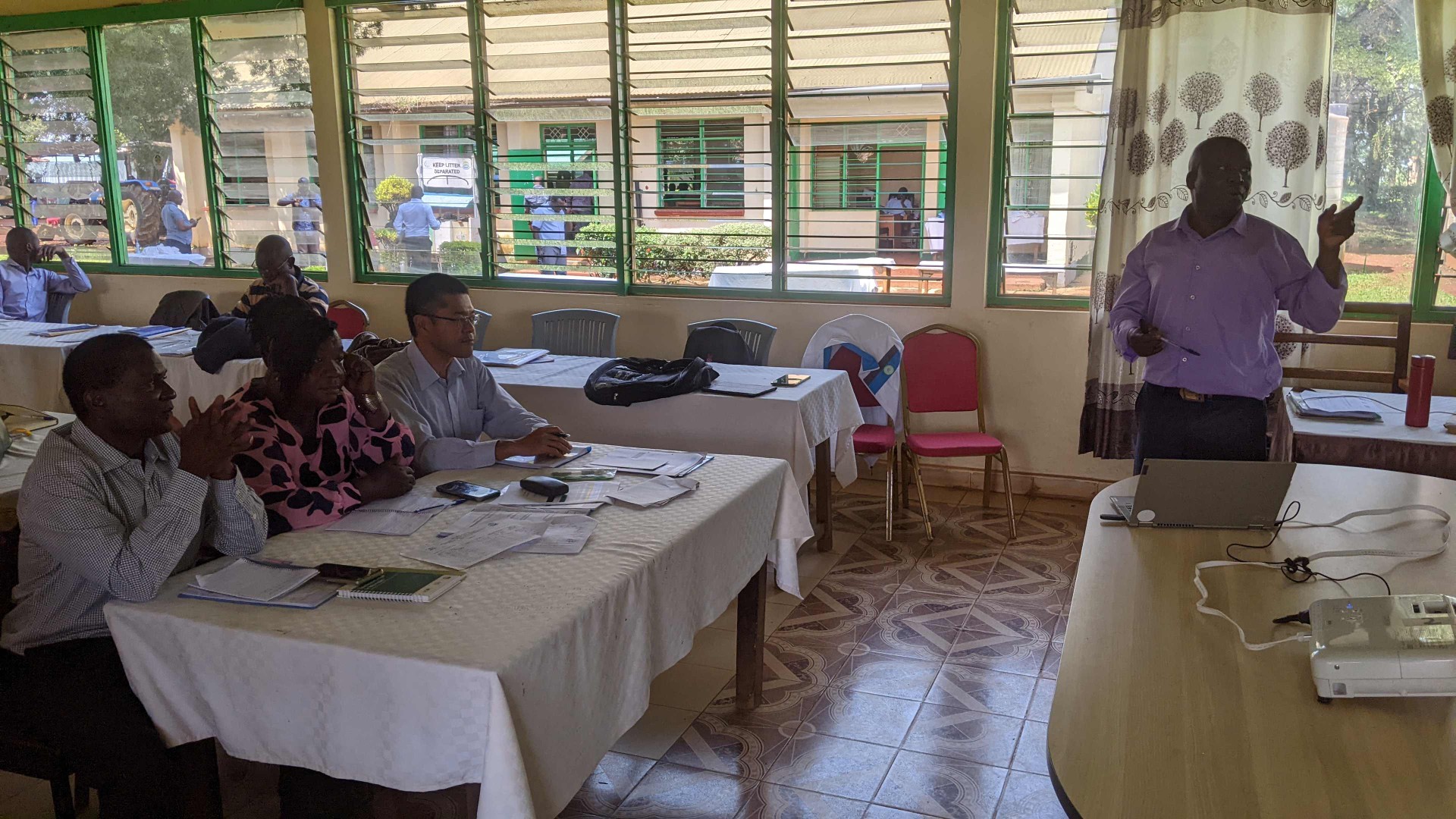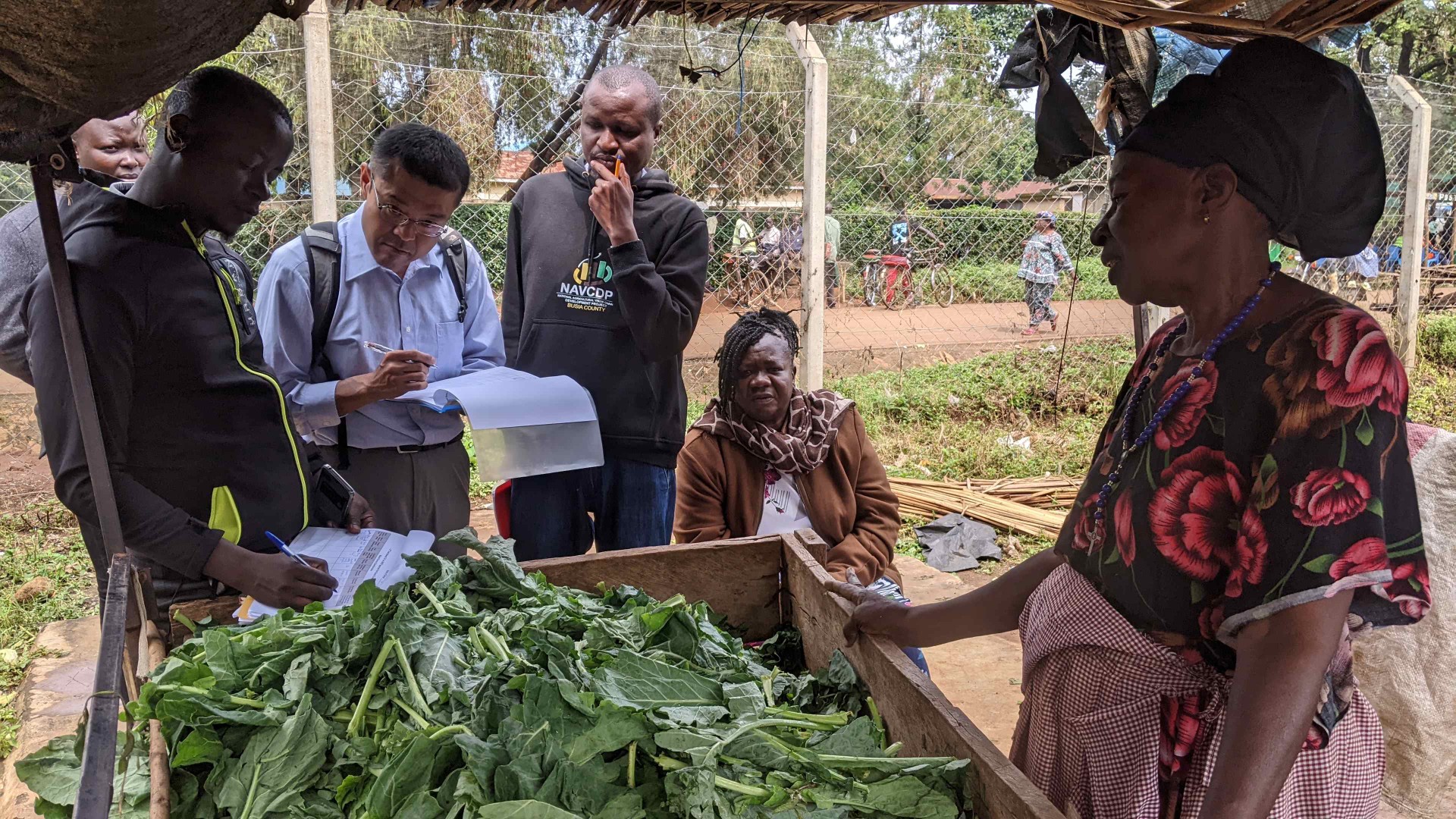Project News Volume 42
My name is Masato Mori, and I am currently working in Kipkelion Sub County Agriculture Office, Kericho County, as a JICA volunteer 2024 Second Batch. My assignment is community development, primarily focused on supporting small-scale farmers in increasing their incomes. I’m currently visiting each farm to collect information on their cultivated crops and incomes, and through trial and error, I’m considering how I can contribute to increasing farmers’ incomes. This time, I participated in the SHEP training held in Busia County as an observer.
The reason I participated in the training was that one of the requests from my workplace was to support small-scale farmers using SHEP approach. Approximately 70% of the population in my assigned area are small-scale farmers, and many of them have very low incomes and struggle to make ends meet. I am using the SHEP methodology to improving the incomes of these small-scale farmers and enabling them to earn a living through agriculture. The SHEP approach has four steps, and I am currently in the first step: selecting target farmers and establishing shared goals. I plan to continue using SHEP methods in my activities, so I decided to participate in this training in order to gain a deeper understanding of the approach.
What particularly impressed me about the four-day training was visiting the actual market and interviewing from traders. Listening to the voices of the traders led to new discoveries. Our group conducted market survey on Tomatoes and Managu (a traditional African leafy vegetable called Black Night Shade). We learned that prices actually fluctuate based on supply and demand, and we also learned about the quality of crops which traders look for. While round Tomatoes and large-leaf Managu seem to be preferred, we learned that traders commonly need fresh produce. I realized that visiting markets is important for farmers when developing their cultivation plans. Furthermore, during the training, I had the opportunity to discuss with the other participants on the crop price fluctuations and which month each crop should start preparations in order to sell at the peak price. This gave me the experience to think from a farmer's perspective. However, I also learned during the training that in order to actually sell crops when prices are high, appropriate cultivation techniques and irrigation facilities are necessary, and I realized how difficult it is to earn a higher income from agriculture.
In my future activities, I would like to not only convey to each farmer the importance of market survey, but also visit markets with farmers to research the types of crops being sold and their prices, and convey SHEP approach to farmers and encourage them to implement the approach, thereby working hard to support them to increase their incomes.

SHEP training in Busia

Market survey exercise during SHEP training
